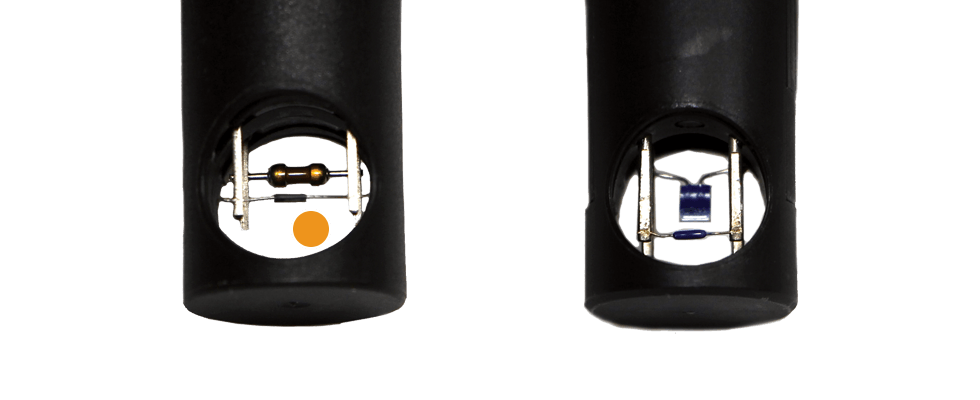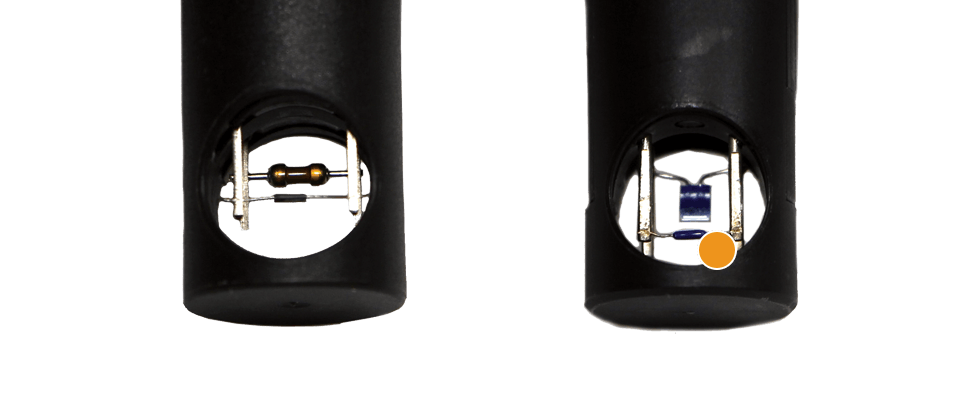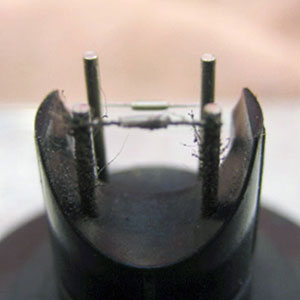
- About Standard Sensors
-
Sensors
- Air Charge / Manifold Temperature Sensors
- Accelerator Pedal Sensors
- Anti-lock Brake (ABS) Sensors
- Brake Pad Wear Sensors
- Camshaft Sensors
- Crankshaft Sensors
- Coolant Temperature Sensors
- Exhaust Gas Temperature Sensor
- Knock Sensors
- MAP Sensors
- Mass Air Flow (MAF) Sensors
- Steering Angle Sensors
- Transmission Input/Output Sensors
- Vehicle Speed Sensors
- Yaw Rate Sensors
Mass Air Flow (MAF) Sensors
Mass Air Flow Sensors (a.k.a. MAF Sensors) are precision components that measure the amount of airflow entering the intake manifold and must communicate clearly with the Engine Control Module (ECM). Remanufactured MAF sensors with debris from prior use can hinder this communication and cause the vehicle to experience drivability issues. To ensure accurate airflow, precise performance, and longer service life, Standard and Intermotor offer a higher-quality alternative: a line of 100% NEW, never remanufactured, Mass Air Flow Sensors.
The New Benchmark for Mass Air Flow Sensors
Most comprehensive coverage for NEW OE-quality MAFs
Our MAF Sensors are 100% NEW, not remanufactured
Our MAF Sensors are Airflow Calibrated to ensure accuracy
Manufacturing 100% New Mass Air Flow Sensors
Every Standard and Intermotor MAF Sensor is 100% NEW, and never remanufactured. Standard and Intermotor MAF Sensors are manufactured and designed with improvements such as thicker walls, upgraded components, and a custom-designed platinum RTD sensor*. The result is a line of 100% NEW MAF Sensors that provide highly accurate readings and precise airflow output under all operating conditions.
* Improvements specific to certain part numbers
Why Mass Air Flow Sensor Testing and Calibration Matters
One of the most important factors for sensor performance is precise testing and calibration. This is what sets Standard apart from the rest. With onsite engineering, design, and test labs at our IATF 16949- and ISO 14001-certified manufacturing facility, Standard is able to produce 100% new mass airflow sensors that precisely match the OE output and perform flawlessly under all operating conditions. Here are just a few of our testing and calibration techniques:
Choked Airflow Testing & Calibration accurately measures and calibrates our new MAF sensors
Salt & Chemical Contamination Testing ensures MAF sensors withstand harsh environmental conditions
On-Vehicle Road & Vibration Testing ensures performance and durability in real-world conditions
The Importance of Quality RTD Sensors
In addition to testing and calibration, another important factor for performance is the use of high-quality RTD sensors. All SMP-manufactured mass airflow sensors feature custom-designed, platinum flow RTD sensors that precisely match OE outputs, and temperature RTD sensors that match OE specifications more closely than the diodes used by some competitors. Plus, the pull strength of our RTD lead joints not only matches the OE, but exceeds the aftermarket competition. Our RTD components also don't break under extreme vibration.
-

Our custom-designed platinum RTD sensors outperform the aftermarket competition in vehicle road, air flow, and high-temp degradation testing, which results in proper drivability
-

Competitor's low-quality RTD sensors failed our vehicle road, air flow, and high-temp degradation tests, resulting in noticeable drivability issues.
When should you replace a Mass Airflow Sensor?
Road debris and other contaminants that get past the air filter can coat the sensor’s sensing element. The coating insulates the element, causing under-reporting of airflow off-idle and over-reporting of air at low air speeds. GM systems are the one exception to over-reporting of air mass at low airflow speeds.
Often, technicians first try to clean the mass airflow sensor. Although cleaning a contaminated sensor may seem to bring the performance back, it rarely brings it to 100% operation and accuracy. There are many instances where the internal circuitry is damaged or shorted. In these cases, the sensor needs to be replaced. Because the sensor is a key component to the engine’s fueling strategy, it is crucial that it reports with 100% accuracy to ensure peak performance, fuel economy, and reduced emissions.

How to Install a MAF Sensor
In this how-to video, our ASE-certified Master Technician shows you how to install a MAF sensor on a Ford Escape 3.0L engine. For more MAF videos, check out our YouTube Playlist.
